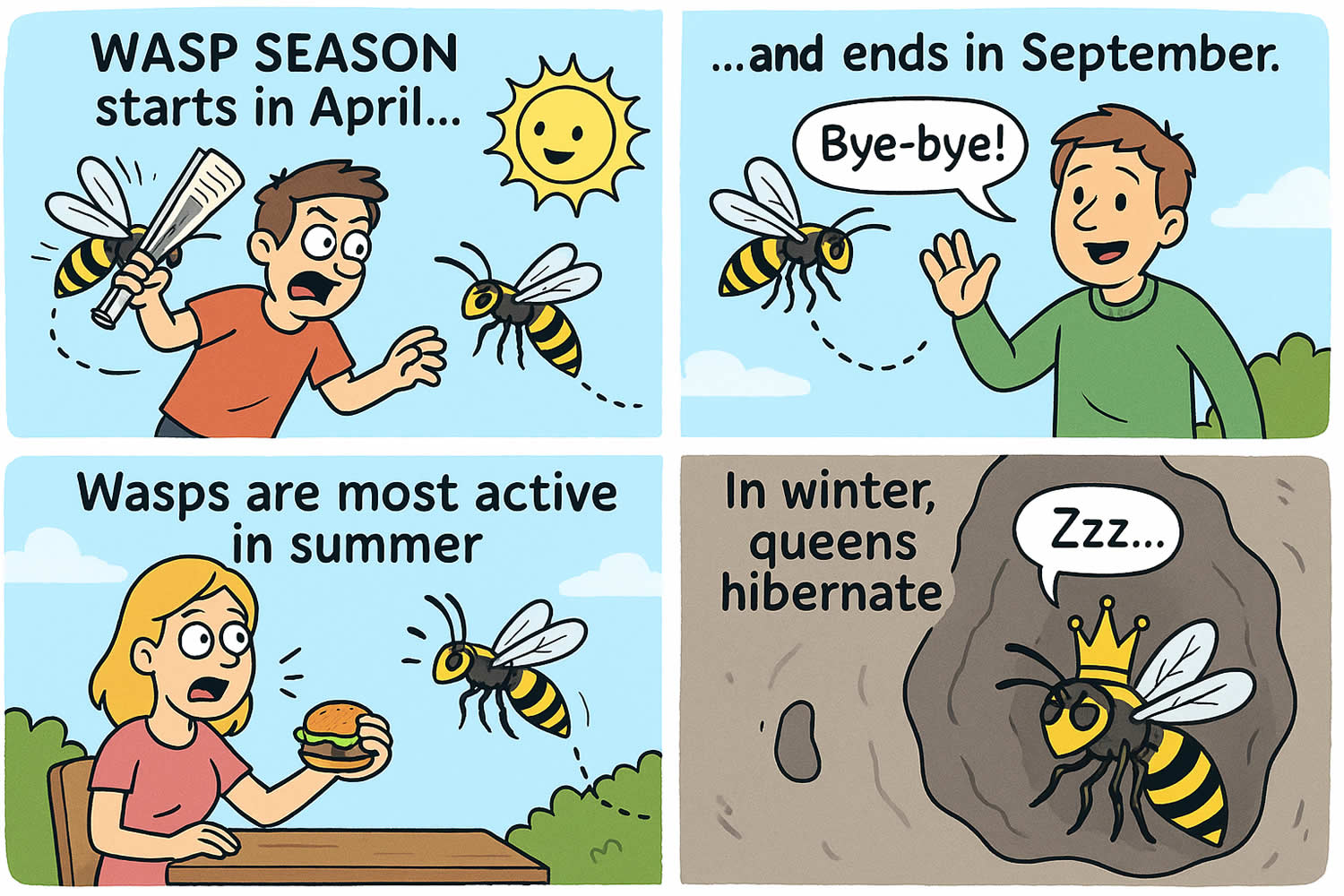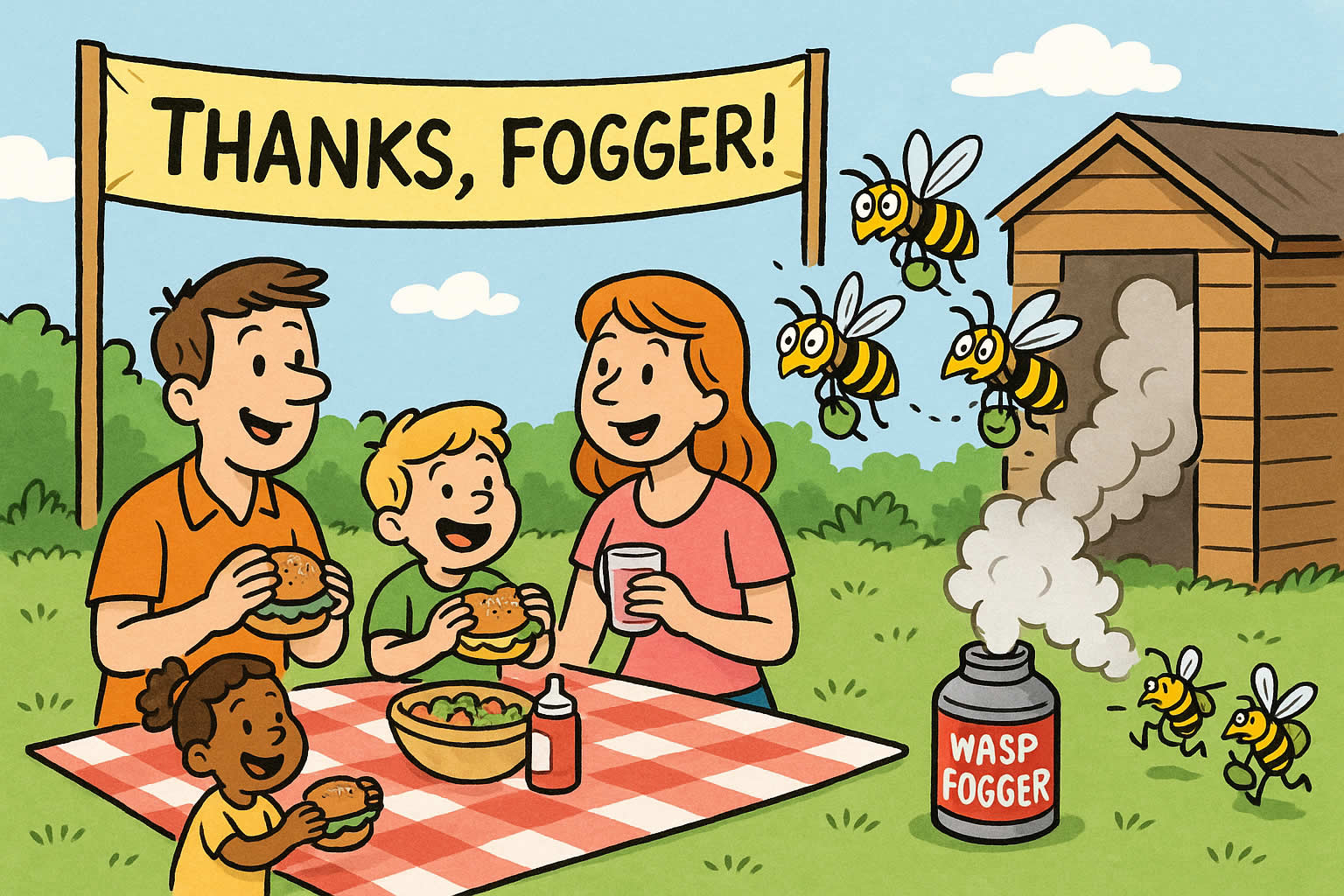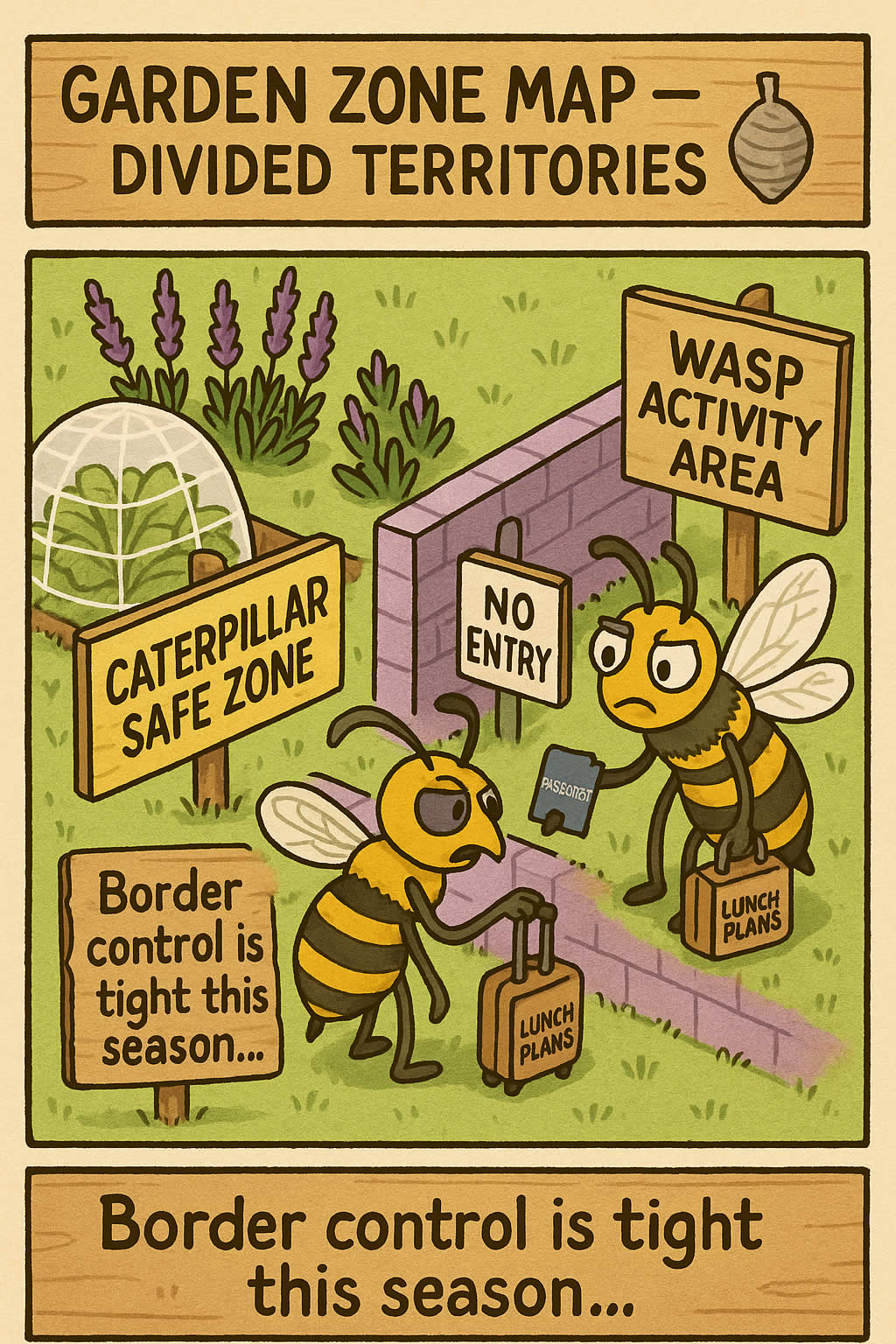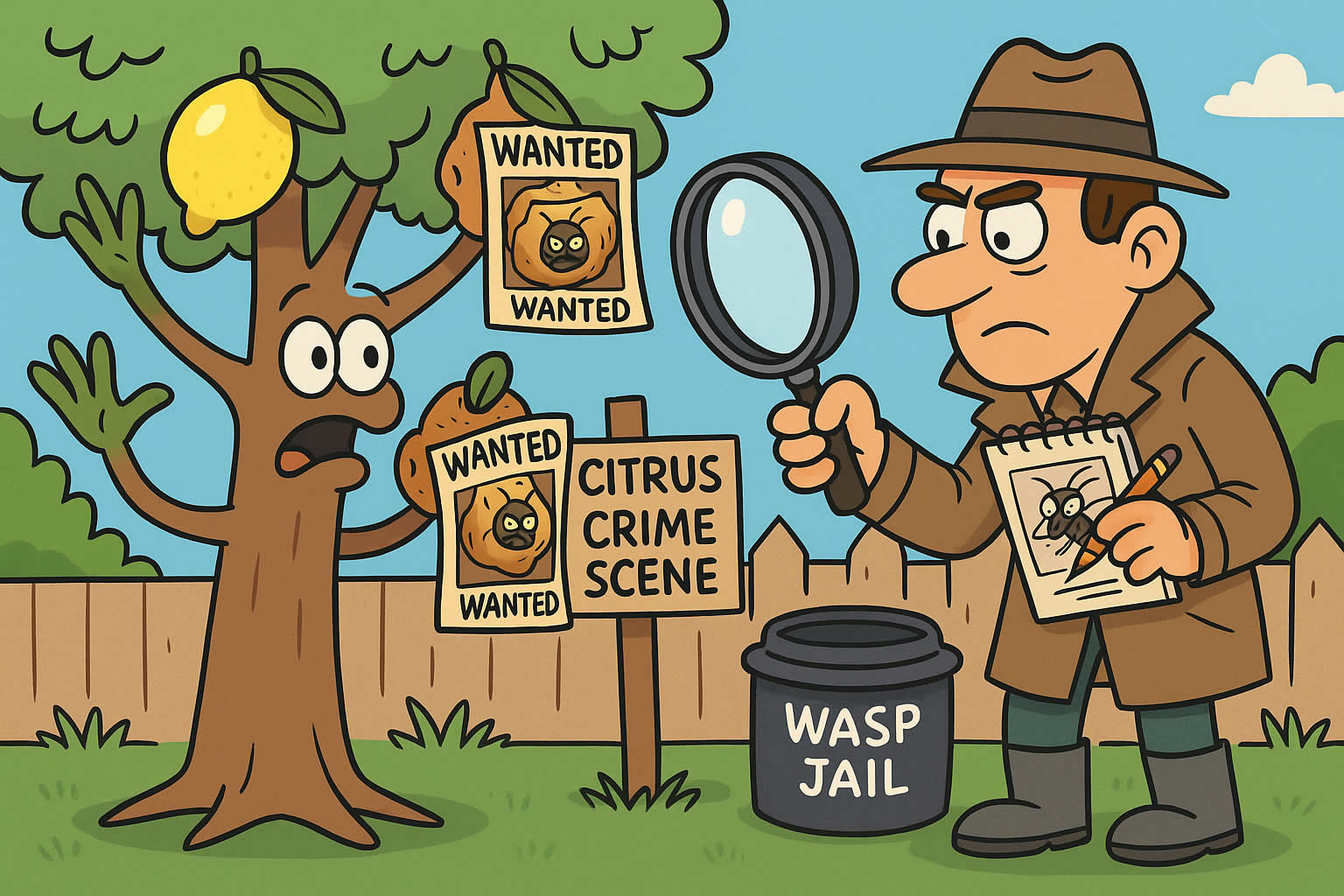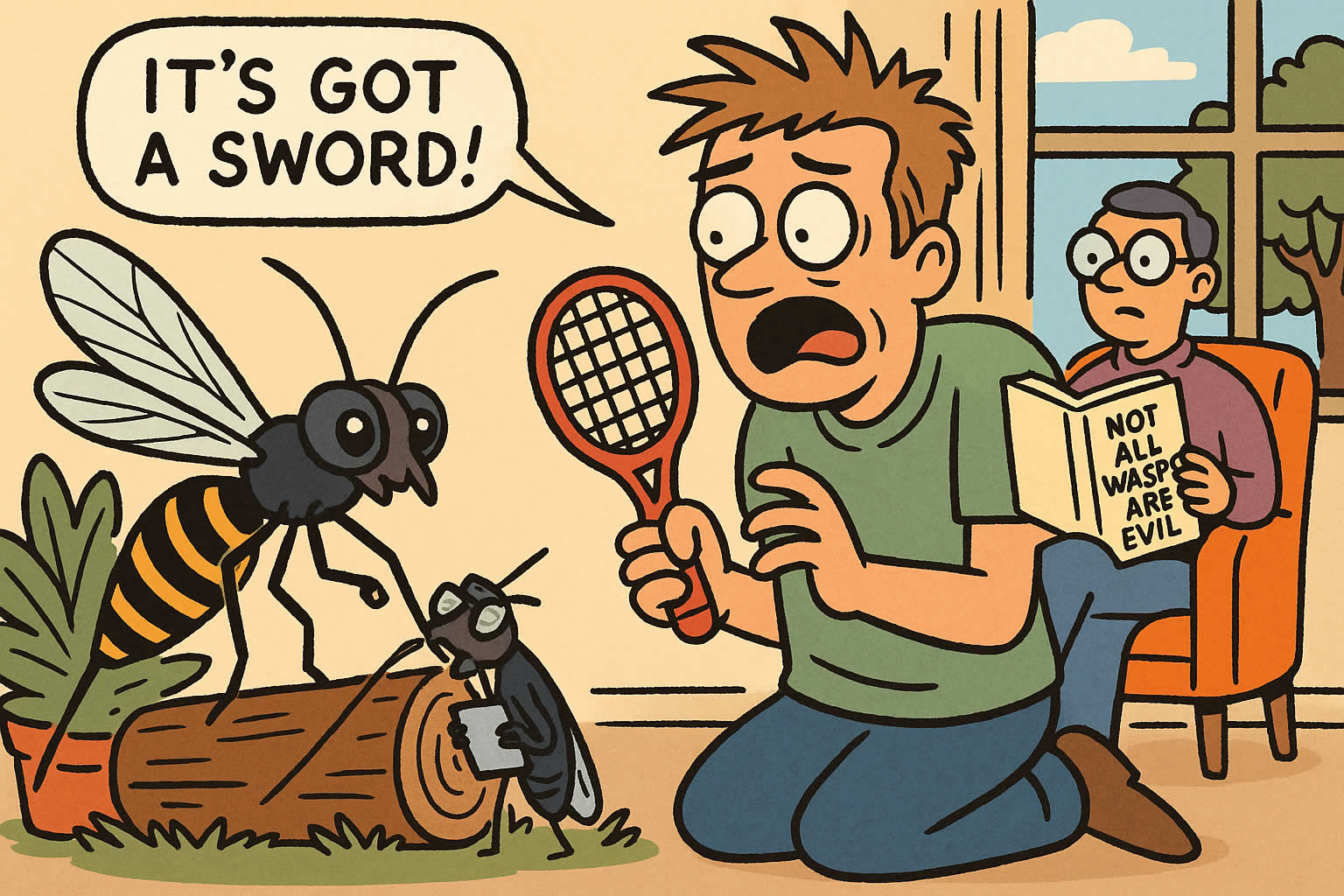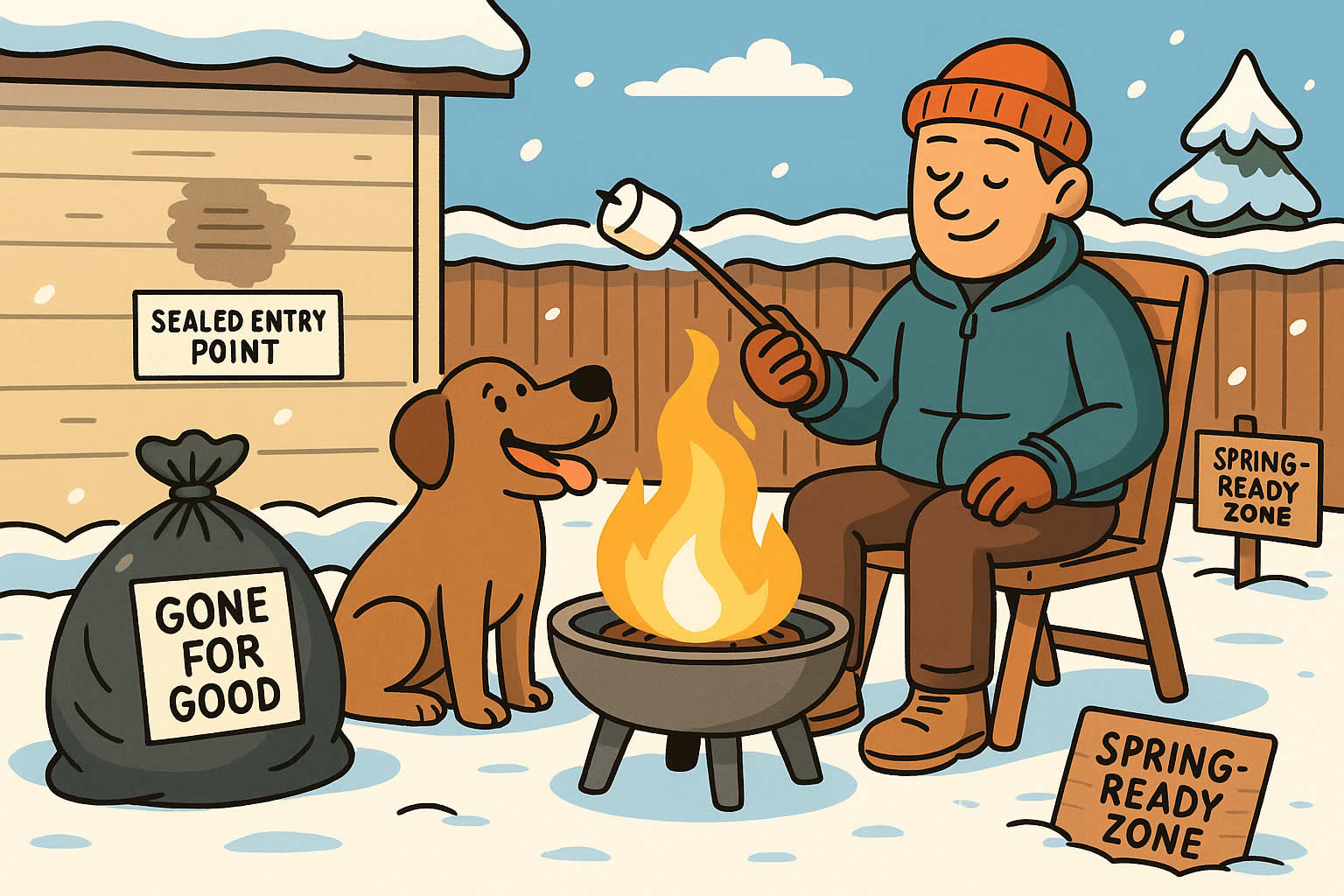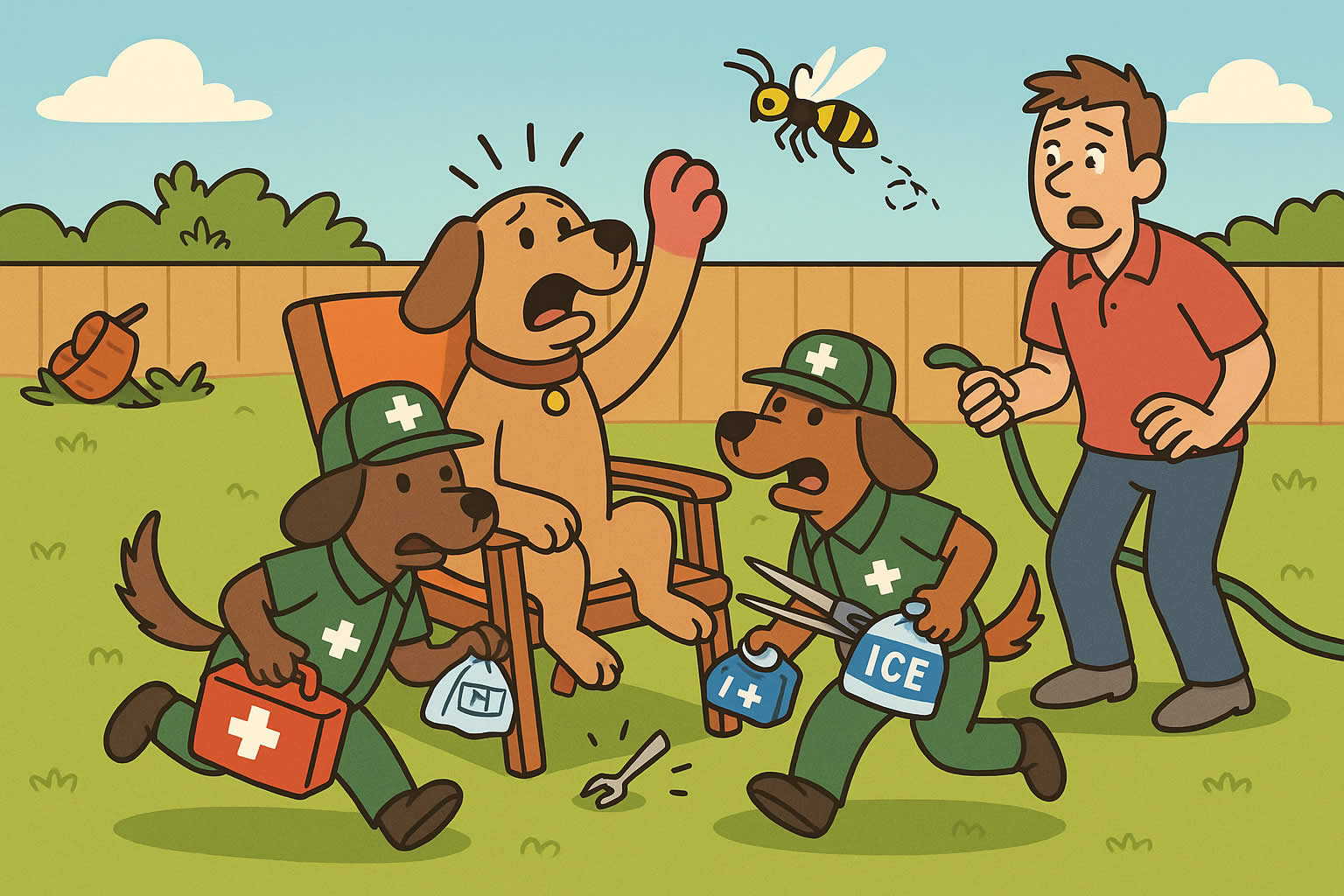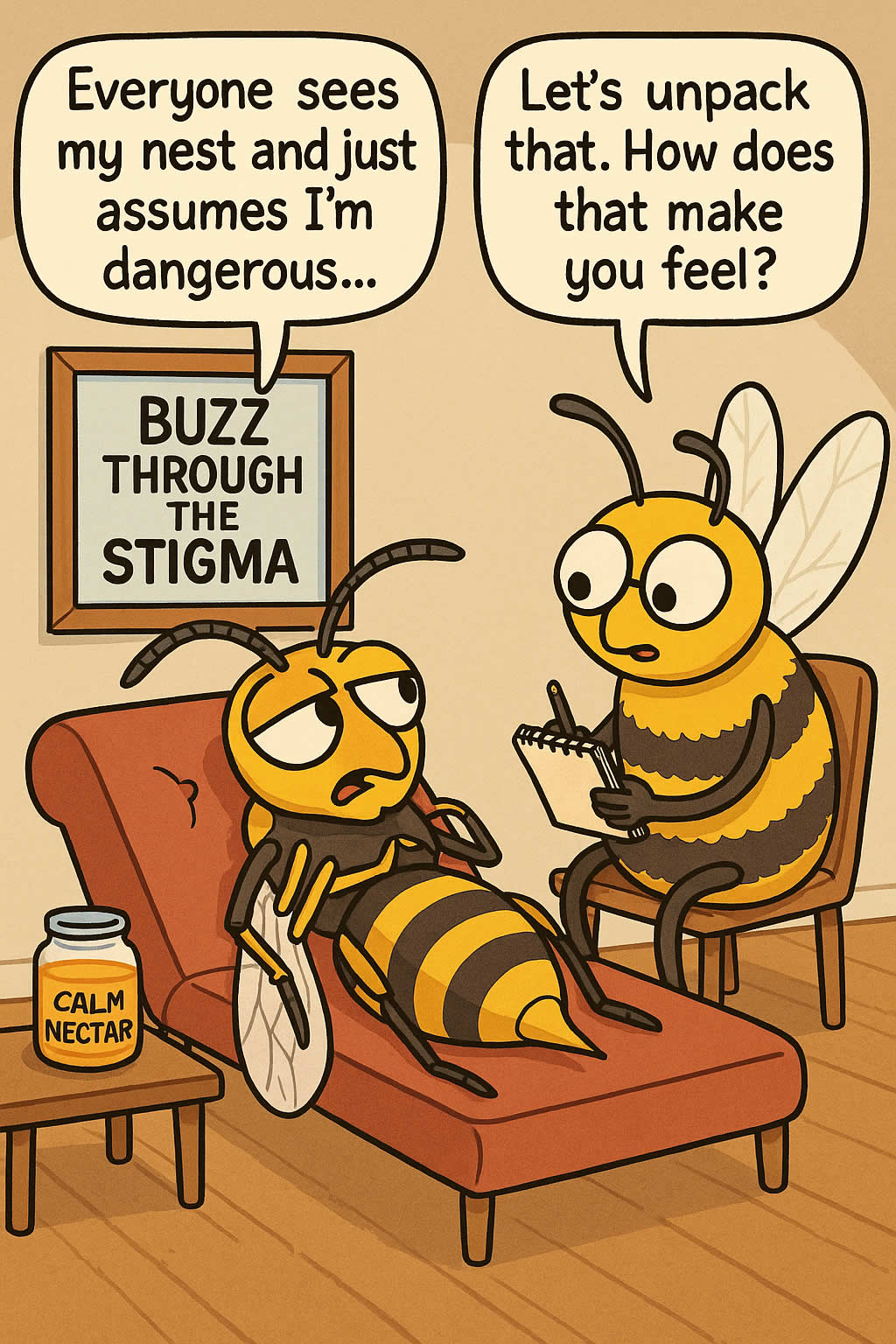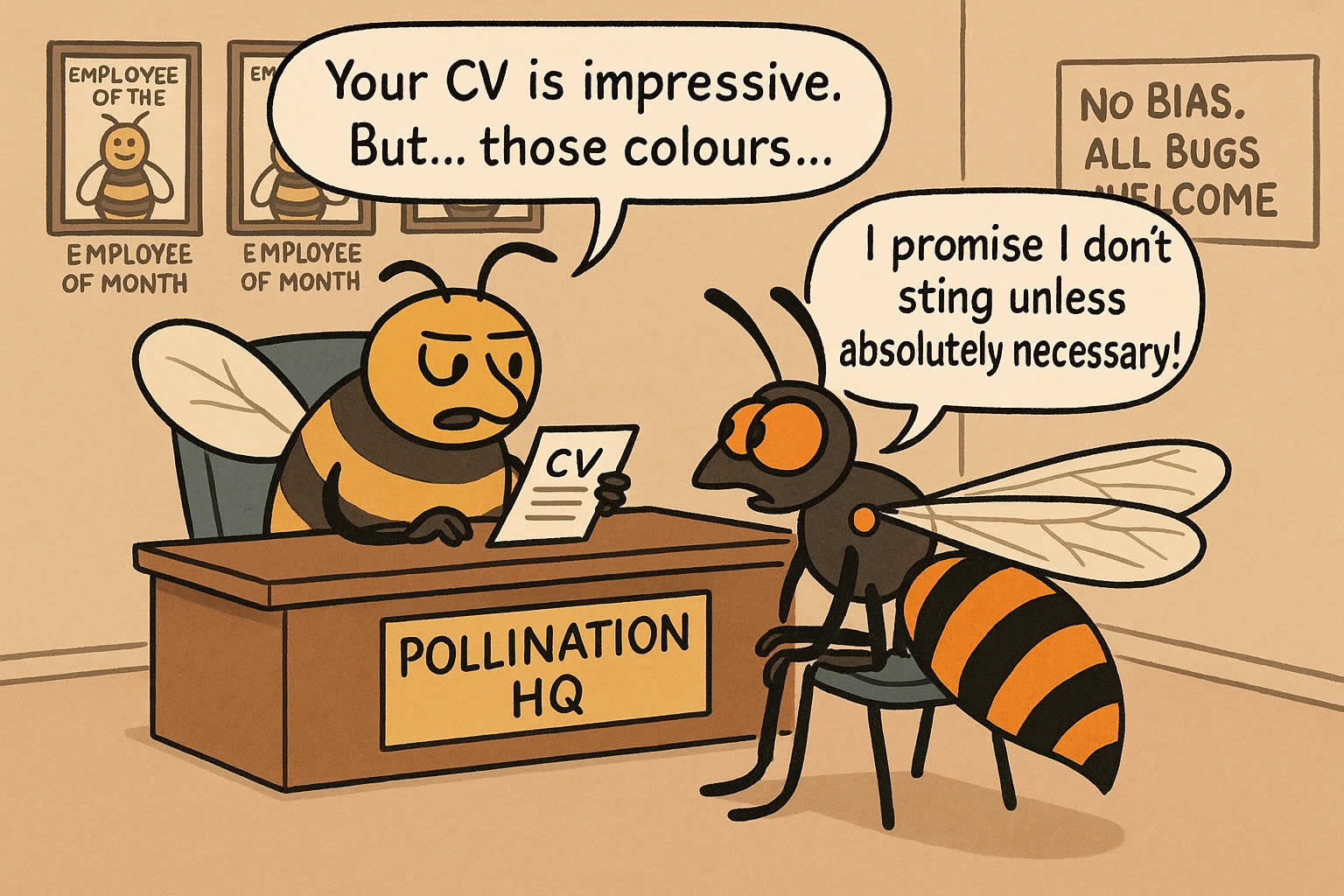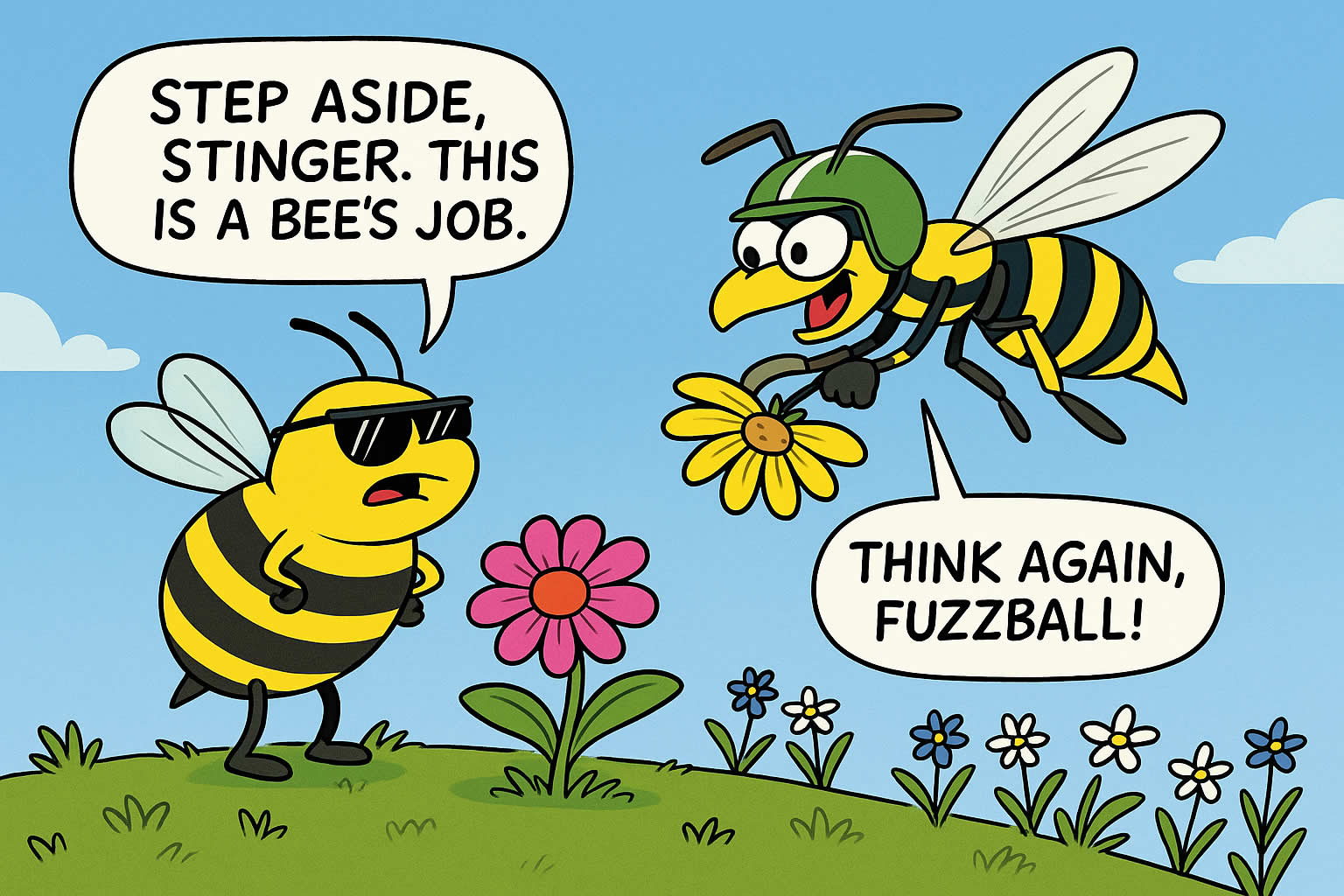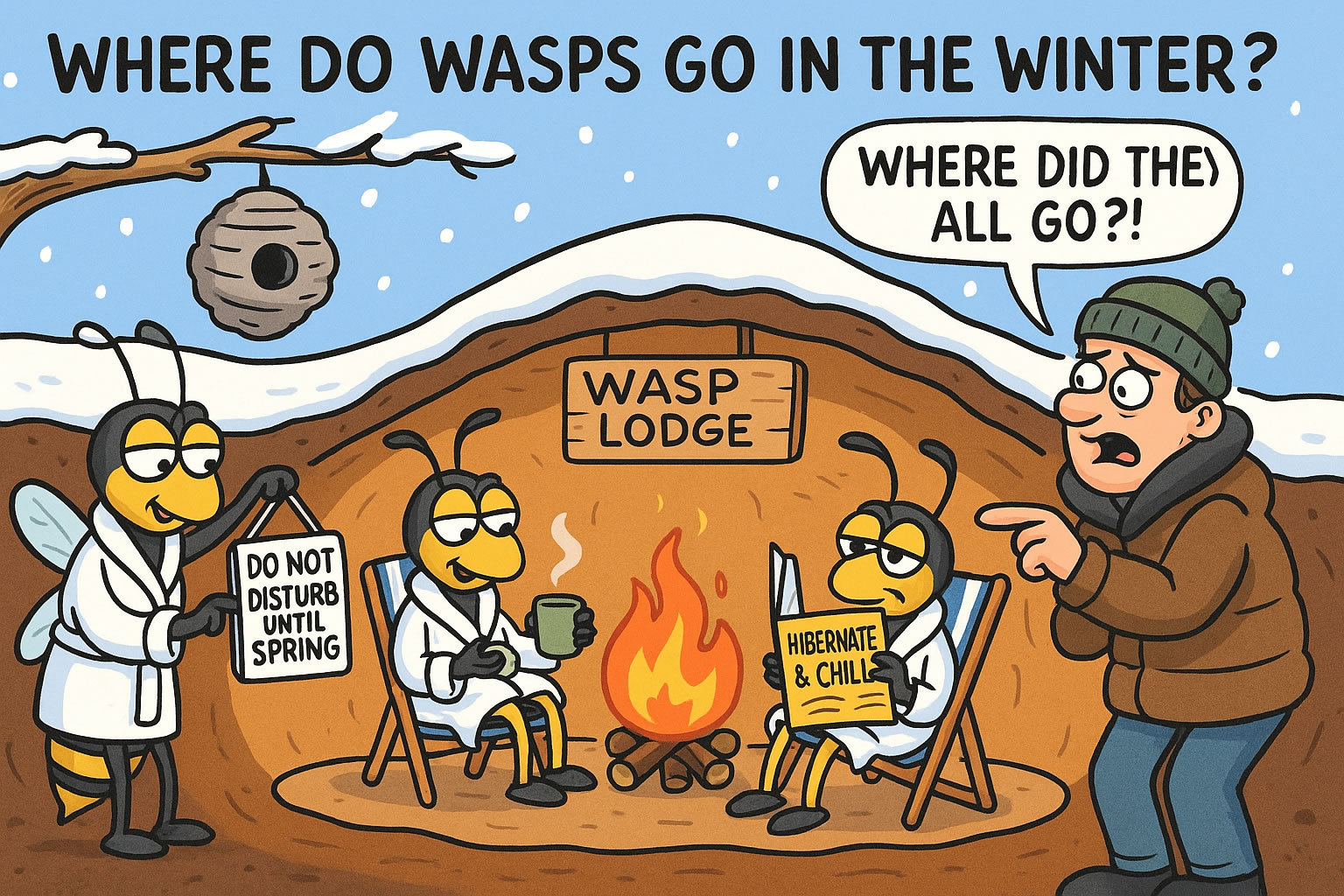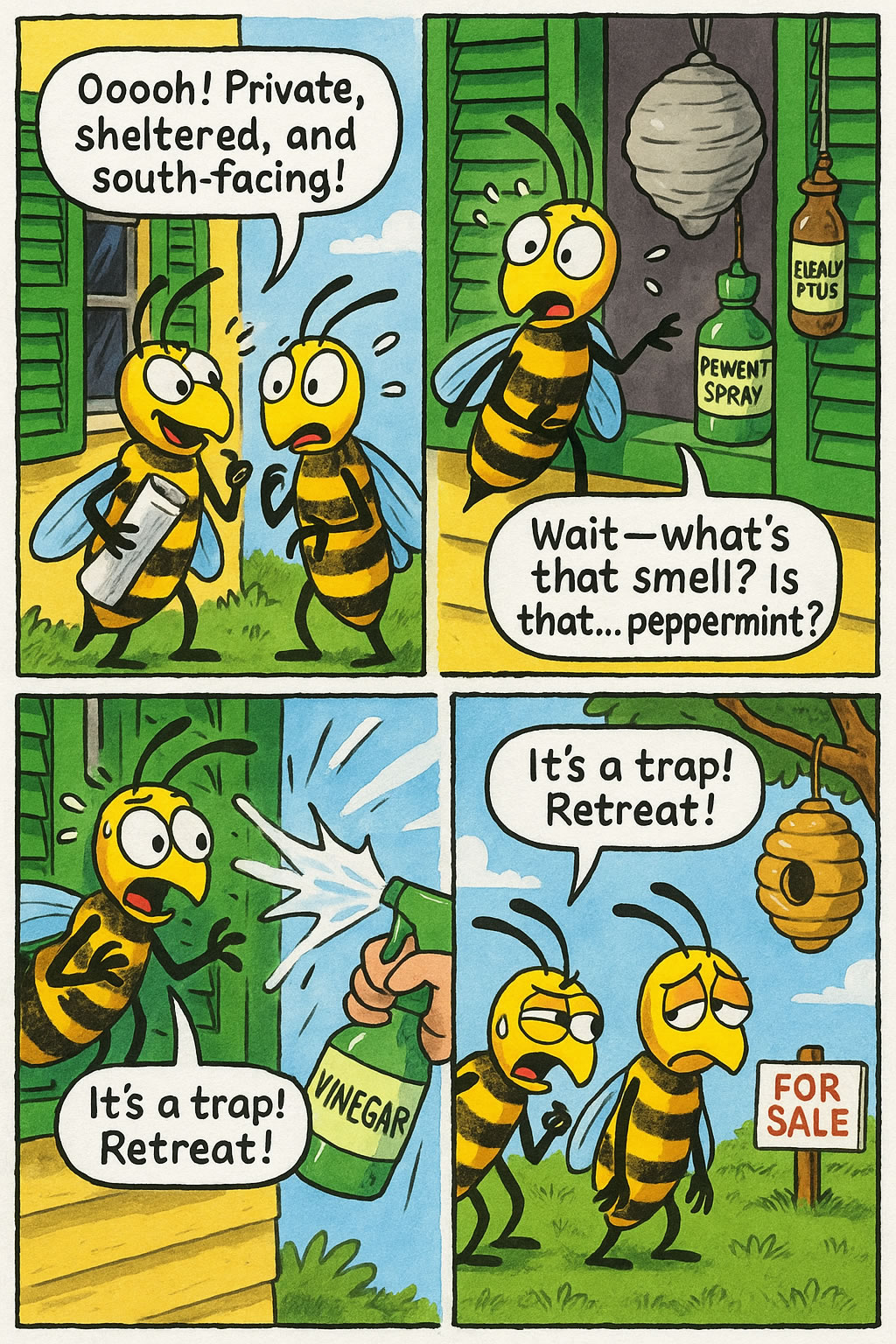Related Queries
ToggleIf you’ve ever had a run-in with a wasp, you probably remember it. That sharp sting, the sudden panic, and maybe even the scramble to get indoors. It’s not something you forget quickly. And if you’re someone who likes to enjoy your garden, host summer barbecues, or just keep your home pest-free, knowing when wasp season hits in the UK can make all the difference.
This isn’t just about avoiding a sting or two. It’s about understanding when they’re most active, why they turn up in numbers, and what you can do to stop them before they take over your space. In this post, you’ll learn when wasp season starts and ends, what signs to look out for, and the steps you can take to stay safe and wasp-free. Let’s walk through it together.
When does wasp season usually start in the UK?
Wasp season in the UK tends to kick off around late April to early May, depending on how warm the spring is. Wasps begin to emerge when the weather starts to settle and daytime temperatures hit around 10°C and above regularly. That’s when the queen, who’s been hibernating all winter, wakes up.
She doesn’t waste time. She’ll start searching for a nesting site almost immediately. That could be in a loft, garage, shed, under a roof tile, or even in the ground. Once she finds a safe spot, she gets to work laying eggs and building the first stage of the nest.
By the time May rolls in, nests are already forming. You might not notice much at this point unless the nest is in a busy area, because the colony will still be small.
What happens as the summer progresses?
As the weather warms up through June and July, the wasp colonies grow rapidly. Each nest could end up holding thousands of wasps, especially if it’s in a quiet, undisturbed spot. Worker wasps are constantly flying in and out, collecting food, expanding the nest, and protecting the queen.
By August, wasp numbers are usually at their highest. This is when most people start to notice them. You’ll see more wasps at outdoor events, around bins, at picnic tables, and buzzing around food and drink. This is the peak of the season, and it’s when wasps are most active — and most annoying.
Why do wasps seem more aggressive in late summer?
You’ve probably heard that wasps get “angrier” in August and September. That’s not just your imagination — there’s a good reason for it.
Earlier in the season, the worker wasps stay busy feeding the larvae inside the nest. In return, the larvae produce a sweet substance that the workers eat. But once the queen stops laying eggs (usually around late summer), that food source dries up.
Now, the workers are hungry and looking for sugar. They go after fruit, fizzy drinks, and anything sweet they can find. That’s when you’ll see them hovering around beer glasses, bins, and barbecue leftovers. They’re desperate and unpredictable, which is why they seem bolder or more aggressive.
When does wasp season end?
Wasp season usually winds down by late September or October, when temperatures start to drop and food becomes harder to find. Most wasps will die off as the weather turns colder, and the nest will be abandoned. Only the new queens survive. They leave the nest to mate and then find a safe place to hibernate through the winter.
So, by mid to late autumn, the worst of it is usually over. But if you’ve had a nest on your property this year, it’s worth remembering the spot. A queen might return to the same kind of place next spring.
What are the signs that wasp season has started near you?
Early signs can be subtle. You might see a few wasps flying in and out of a gap under the eaves or near a shed roof. That could mean a queen has already started building her nest. It’s better to act early rather than wait until there are hundreds flying about.
Here’s what to keep an eye out for:
- Regular wasp activity around a certain area, especially near gaps in walls or roof spaces
- A papery-looking structure (a nest) under eaves, in the loft, or in a garage corner
- A low humming or buzzing sound near walls or sheds
Catching these signs early gives you more control. You’ve got a better chance of sorting it before the nest grows and things get more complicated.
Is there anything you can do before wasp season starts?
Absolutely. If you want to stay ahead of the problem, it’s worth doing a bit of prep in early spring. That way, you make your space less inviting before a queen even turns up.
Here are a few things you can do:
- Check your roofline, loft, and garage for small holes or entry points. Seal any gaps
- Keep bins closed tightly, especially those with food waste
- Clear away fallen fruit if you have trees in the garden
- Install wasp traps early in the season to catch queens before they settle
If you do these things before May, you’ll reduce the chances of a nest forming near your home.
What should you do if you find a wasp nest?
If it’s early in the season and the nest is still small, you might be able to deal with it yourself using an off-the-shelf wasp spray or powder. But be careful — even a small colony can become defensive.
If the nest is large, or if it’s in a hard-to-reach place (like under roof tiles or inside a wall), it’s best to call in a professional. Pest control teams have the gear and experience to deal with wasps safely.
Don’t try to block the nest entrance. That won’t solve the problem, and it might make the wasps more aggressive. And don’t try to knock it down — that’s a fast way to get stung.
Why is it important to deal with wasps early?
Once a nest reaches full size, you’re dealing with thousands of wasps. At that stage, even a minor disturbance could cause a swarm. That puts you, your family, and your neighbours at risk — especially if someone has a wasp allergy.
And it’s not just about safety. Large nests can cause damage. Wasps can chew through plasterboard, damage insulation, and leave behind mess and odour when the nest dies off.
The earlier you spot and remove a nest, the cheaper and simpler it is to fix.
Do wasps come back to the same place every year?
Not exactly, but they can. Old nests aren’t reused, but queens may return to the same type of environment to build new ones. So, if a queen liked your loft this year, another might choose it again next spring.
That’s why it’s worth sealing entry points and checking trouble spots at the start of every season. Prevention is always easier than removal.
Can you keep wasps out of your garden?
You can’t block them entirely — wasps fly freely — but you can make your space less attractive.
Try these steps:
- Keep sugary drinks covered when outside
- Tidy up food waste quickly during barbecues or picnics
- Use citronella candles or wasp-repellent plants like mint and basil
- Keep bins clean and closed
- Hang decoy wasp nests — some people find these discourage queens from settling nearby
A bit of planning can help you enjoy your garden without worrying every time you hear a buzz.
Should you kill wasps or leave them alone?
It depends. If they’re not bothering anyone and there’s no nest on your property, it might be best to leave them alone. Wasps play a role in nature — they help control other pests like greenfly and caterpillars.
But if there’s a nest near your home or you’ve got young kids, pets, or someone with a sting allergy, it’s safer to remove it. Your safety and comfort come first.
How can you stay safe during peak wasp season?
From July to September, wasps are everywhere. Here’s how to stay one step ahead:
- Don’t swat or wave your arms — it can make them aggressive
- Stay calm and move away slowly if one gets too close
- Keep food and drinks covered when eating outdoors
- Check bottles and cans before taking a sip
- Be cautious near bins or fruit trees
And if you’ve got a known allergy, always keep your medication with you. Even a single sting can be serious.
What’s the takeaway about wasp season in the UK?
Wasp season runs from April to October, with the peak in August and September. If you’re prepared, it doesn’t have to be stressful. Stay alert in spring, take action early, and keep your home and garden less inviting to queens looking to nest.
The earlier you spot the signs, the easier it is to avoid a full-blown wasp invasion. And if a nest does show up, don’t wait for it to get out of hand. Either tackle it early or get someone in who knows how to handle it safely.
So next time you hear a buzz in April or notice one too many wasps around the garden in August, you’ll know exactly what’s going on — and what to do about it.
Are you looking for pest control in Hertfordshire? Get in touch with us and a local pest removal company will be in touch.
Pest Control Stewartby – Pest Control Stotfold – Pest Control Houghton Regis
